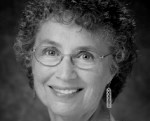By Alain Valles, CRMP, CSA, MS, MBA, Nonprofit Managing Director

“I love my home. I’m getting older. I want to be financially independent and prepared. I’m anxious about my options. I don’t want to be sold.”
These are the most common responses when I’m discussing reverse mortgages. In fact, few people are eager to make move in where they live, even as they grow older and their needs change. Studies have shown that 90 percent of adults over the age of 65 would prefer to stay in their current homes as they age.
In recent years there has been a powerful trend across the U.S. called “aging in place.” The U.S. Center for Disease Control defines this as “the ability to live in one’s own home and community safely, independently, and comfortably, regardless of age, income, or ability level.” What aging in place really means is remaining in the home of your choice for as long as you want with enough resources for current and future needs.
Life happens and it costs money
As you grow older you may face the challenge of being able to afford to continue to live in your own home. The top stress points include ongoing mortgage or home-equity line payments, credit card bills, recurring and unexpected medical expenses, home repairs, real estate taxes, job loss, divorce, loss of a loved one, children needing money, or just trying to enjoy life a bit more. Without a plan, your quality of life may diminish or be forced to sell your home to make ends meet.
These challenges are some of the reason the U.S. Department of Housing and Urban Development (HUD) authorized and guarantees reverse mortgages” for qualified homeowners age 62 or older. A reverse mortgage can provide the financial relief needed to enjoy and afford “aging in place” in your own home.
What are the top advantages of a reverse mortgage?
The most common uses of reverse mortgages are:
- Access to cash if ever needed
- Not having to make a monthly mortgage payment (note- one is always responsible for real estate taxes, insurance, and other loan guidelines)
- Paying of mortgages and credit cards
- Home repairs
- Medical expenses
- Supplementing social security
- Paying real estate taxes
- Replacing lost income
- Having fun
What are other options to a reverse mortgage?
We always compare reverse mortgages to other possible options including:
- Traditional mortgages
- Using existing liquid assets
- Family member assistance
- Federal, state, and local support
- Downsize, rightsizing, renting, or purchasing a home with a reverse mortgage
The key here is doing something. Invest a little bit of time to explore your options instead of making a decision by indecision. By becoming more knowledgeable we believe you will reduce your stress and be able to have a better quality of life.
What is my first step?
The first step is to call or email us. We’ll review your personal situation, goals, and discuss if you qualify. If you’re interested in more information, we will meet with you to review, in detail, the cost, benefits, guidelines, forms, counseling requirements, and different options Our goal is to share information with you so that you may make a fully educated decision if a reverse mortgage is right for you.
Not sure where to get the facts about reverse mortgages?
We’re here to help. Helping Hands Community Partners is an approved 501(c)(3) self-funded nonprofit with the mission to educate people about senior housing options and, when appropriate, we can arrange reverse mortgages for qualified individuals.
A great place to get information is the free “How to Use Your Home to Stay at Home” 36-page book. This is the official reverse mortgage consumer booklet approved by HUD and published by the National Council on Aging. The free “25 Ways to Use a Reverse Mortgage” from the National Reverse Mortgage Lenders Association lists the many ways a Reverse Mortgage can help.
Please give me a call or email to receive your free copy of “Use Your Home to Stay at Home” and “25 Ways to Use a Reverse Mortgage.” We’re here to help.
Alain Valles is a managing director of Helping Hands Community Partners, Inc. and was the first designated Certified Reverse Mortgage Professional in New England. He obtained a master of science from the M.I.T. Center for Real Estate, an MBA from the Wharton School, and graduated summa cum laude from UMass Amherst. He can be reached directly at 781-724-6221 or by email at av@hhcp.org.









